Internationale Integration der Finanzmärkte, Wirtschaftswachstum und Finanzstabilität
Die internationale Integration der Finanzmärkte ist einer der wichtigsten weltwirtschaftlichen Trends der Gegenwart. Diese Forschungsgruppe analysiert die Rolle der internationalen Finanzintegration für Wirtschaftswachstum und Finanzstabilität.
Aus neoklassischer Sicht erhöht ein integrierter globaler Finanzmarkt das Wirtschaftswachstum, denn er senkt die Kapitalkosten und ermöglicht die Diversifikation von Risiken. Länder mit liberalisiertem internationalen Kapitalverkehr schneiden jedoch nicht unbedingt besser ab als Volkswirtschaften mit Kapitalverkehrskontrollen; und die jüngste Weltfinanzkrise hat sogar dazu geführt, dass sich Finanzmärkte teilweise wieder disintegrieren. Die Neubewertung der Rolle der Finanzintegration für Wirtschaftswachstum und Finanzstabilität scheint also von erheblicher Bedeutung, aus wirtschaftspolitischer Sicht ebenso wie für die akademische Forschung.
Diese Forschungsgruppe soll Antworten auf folgende Fragen suchen: Erstens untersucht die Gruppe, wie die Produktivität von Unternehmen vom Zugang zu internationalem Kapital beeinflusst wird und ob kapitalintensive Sektoren in besonderem Maße von der Liberalisierung des Kapitalverkehrs profitieren. Darüber hinaus untersucht diese Gruppe die strukturellen Transformationsfolgen der finanziellen Integration. Zweitens erreicht internationales Kapital die Realwirtschaft über die Vermittlung durch Finanzinstitute. Die Gruppe analysiert, ob der grenzüberschreitende Kapitalfluss das Verhalten der Banken ändert und insbesondere, wie die Finanzierungslaufzeit, die Struktur und das systemische Risiko beeinflusst werden. Drittens haben internationale Organisationen wie der IWF eine schrittweise Liberalisierung des Kapitalverkehrs vorgeschlagen. So soll die Liberalisierung der Kapitalimporte zeitlichen Vorrang haben vor derjenigen für Kapitalexporte, und die Liberalisierung von Direktinvestitionen soll vor derjenigen von Investitionen in Krediten und Wertpapieren kommen. Es gibt allerdings derzeit noch wenige empirische Arbeiten, die diese Empfehlungen stützen. Die Forschungsgruppe untersucht, ob und wie die Sequenzierung der Kapitalverkehrsliberalisierung für die finanzielle Stabilität von Bedeutung ist.
Forschungscluster
Produktivität und InstitutionenIhr Kontakt

- Abteilung Makroökonomik
Referierte Publikationen

Financial Technologies and the Effectiveness of Monetary Policy Transmission
in: European Economic Review, January 2024
Abstract
<p>This study investigates whether and how financial technologies (FinTech) influence the effectiveness of monetary policy transmission. We use an interacted panel vector autoregression model to explore how the effects of monetary policy shocks change with regional-level FinTech adoption. Results indicate that FinTech adoption generally mitigates the transmission of monetary policy to real GDP, consumer prices, bank loans, and housing prices, with the most significant impact observed in the weakened transmission to bank loan growth. The relaxed financial constraints, regulatory arbitrage, and intensified competition are the possible mechanisms underlying the mitigated transmission.</p>
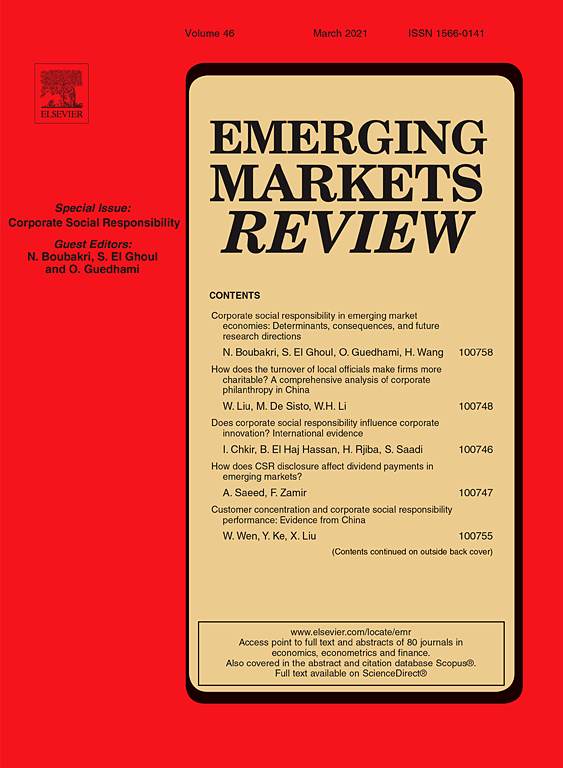
Household Indebtedness, Financial Frictions and the Transmission of Monetary Policy to Consumption: Evidence from China
in: Emerging Markets Review, June 2023
Abstract
This paper studies the impact of household indebtedness on the transmission of monetary policy to consumption using the Chinese household-level survey data. We employ a panel smooth transition regression model to investigate the non-linear role of indebtedness. We find that housing-related indebtedness weakens the monetary policy transmission, and this effect is non-linear as there is a much larger counteraction of consumption in response to monetary policy shocks when household indebtedness increases from a low level rather than from a high level. Moreover, the weakened monetary policy transmission from indebtedness is stronger in urban households than in rural households. This can be explained by the investment good characteristic of real estate in China.
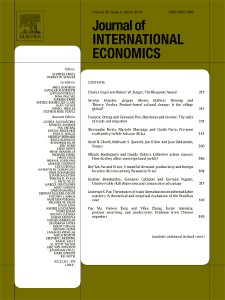
Surges and Instability: The Maturity Shortening Channel
in: Journal of International Economics, November 2022
Abstract
Capital inflow surges destabilize the economy through a maturity shortening mechanism. The underlying reason is that firms have incentives to redeem their debt on demand to accommodate the potential liquidity needs of global investors, which makes international borrowing endogenously fragile. Based on a theoretical model and empirical evidence at both the firm and macro levels, our main findings are twofold. First, a significant association exists between surges and shortened corporate debt maturity, especially for firms with foreign bank relationships and higher redeployability. Second, the probability of a crisis following surges with a flattened yield curve is significantly higher than that following surges without one. Our study suggests that debt maturity is the key to understand the financial instability consequences of capital inflow bonanzas.

Total Factor Productivity Growth at the Firm-level: The Effects of Capital Account Liberalization
in: Journal of International Economics, November 2022
Abstract
This study provides firm-level evidence on the effect of capital account liberalization on total factor productivity (TFP) growth. We find that a one standard deviation increase in the capital account openness indicator constructed by Fernández et al. (2016) is significantly associated with a 0.18 standard deviation increase in firms’ TFP growth rates. The productivity-enhancing effects are stronger for sectors with higher external finance dependence and capital-skill complementarity, and are persistent five years after liberalization. Moreover, we show that potential transmission mechanisms include improved financing conditions, greater skilled labor utilization, and technology upgrades. Finally, we document heterogeneous effects across firm size and tradability, and threshold effects with respect to the country's institutional quality.
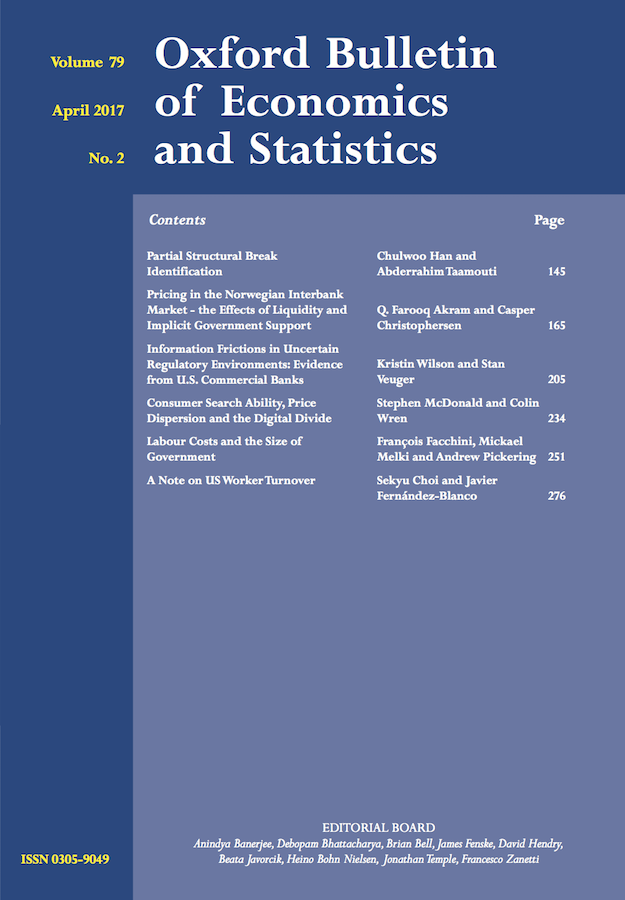
Does Capital Account Liberalization Affect Income Inequality?
in: Oxford Bulletin of Economics and Statistics, Nr. 2, 2021
Abstract
By adopting an identification strategy of difference‐in‐difference estimation combined with propensity score matching between liberalized and closed countries, this paper provides robust evidence that opening the capital account is associated with an increase in income inequality in developing countries. Specifically, capital account liberalization, in the long run, is associated with a reduction in the income share of the poorest half by 2.66–3.79% points and an increase in that of the richest 10% by 5.19–8.76% points. Moreover, directions and categories of capital account liberalization matter. The relationship is more pronounced when liberalizing inward and equity capital flows.
Arbeitspapiere

Climate Policy and International Capital Reallocation
in: IWH Discussion Papers, Nr. 20, 2024
Abstract
<p>This study employs bilateral data on external assets to examine the impact of climate policies on the reallocation of international capital. We find that the stringency of climate policy in the destination country is significantly and positively associated with an increase in the allocation of portfolio equity and banking investment to that country. However, it does not show significant effects on the allocation of foreign direct investment and portfolio debt. Our findings are not driven by valuation effects, and we present evidence that suggests diversification, suasion, and uncertainty mitigation as possible underlying mechanisms.</p>
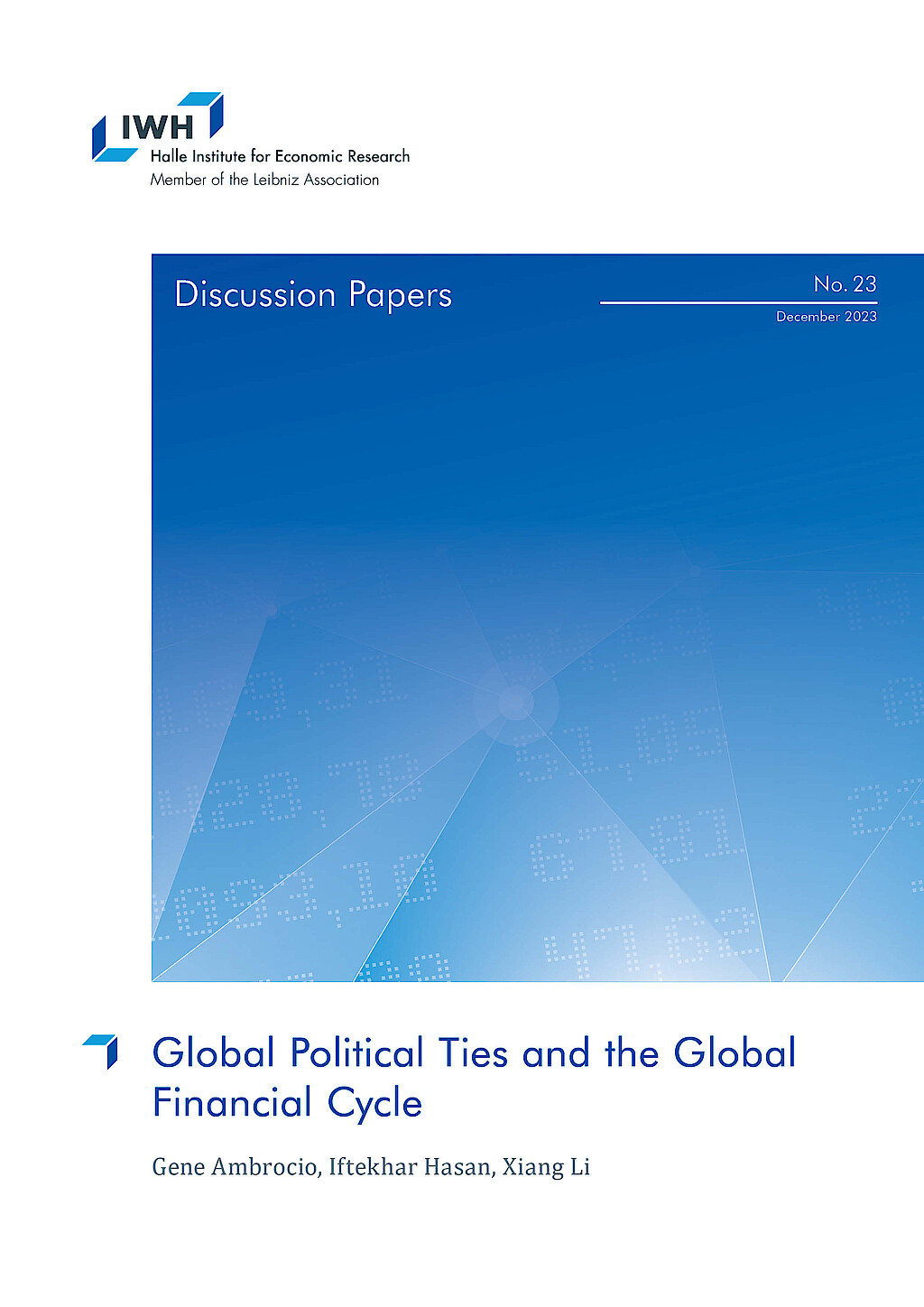
Global Political Ties and the Global Financial Cycle
in: IWH Discussion Papers, Nr. 23, 2023
Abstract
We study the implications of forging stronger political ties with the US on the sensitivities of stock returns around the world to a global common factor – the global financial cycle. Using voting patterns at the United Nations as a measure of political ties with the US along with various measures of the global financial cycle, we document evidence indicating that stronger political ties with the US amplify the sensitivities of stock returns in developing countries to the global financial cycle. We explore several channels and find that a deepening of financial linkages along with a reduction in information asymmetries and an amplification of sentiment are potentially important factors behind this result.
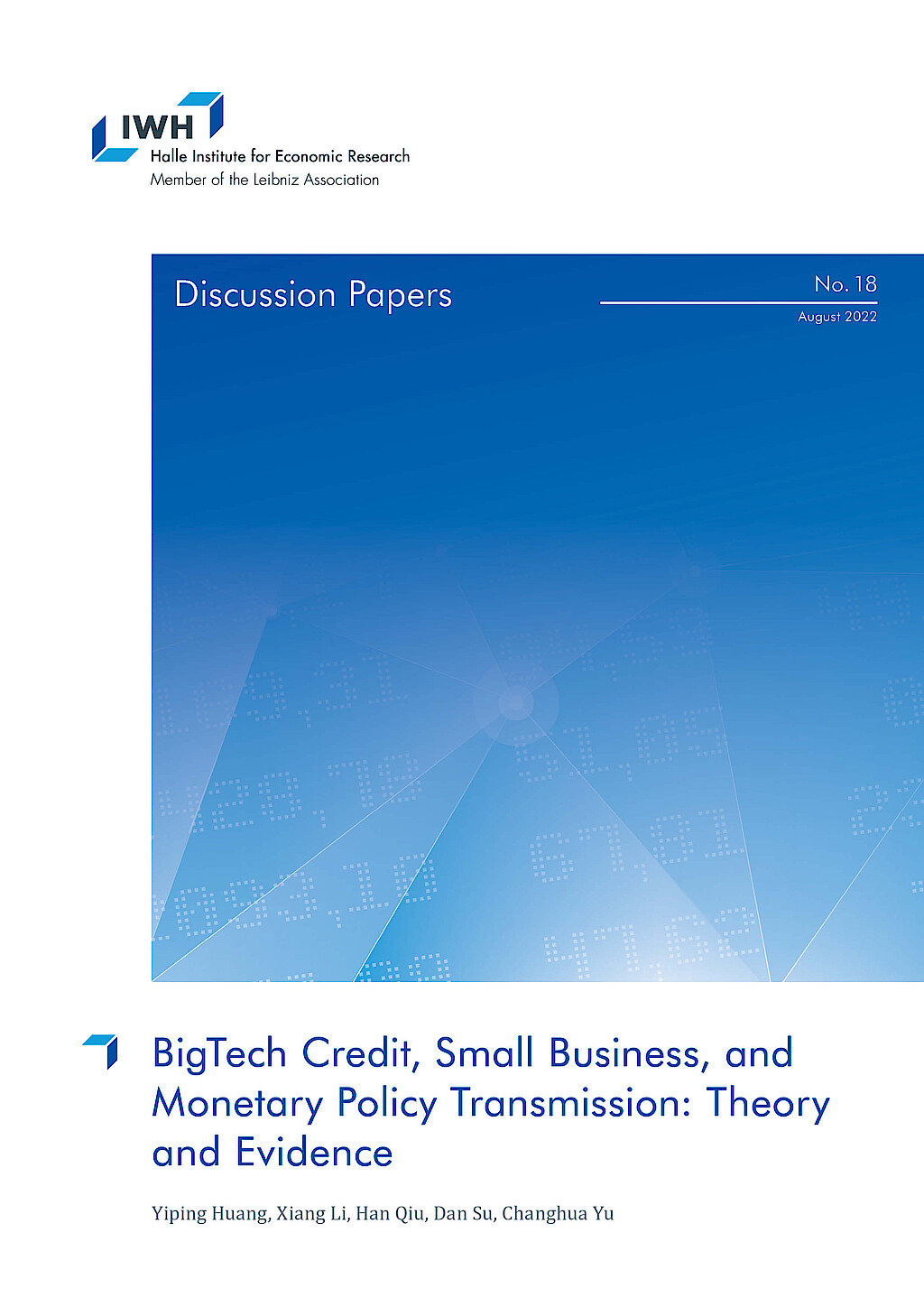
BigTech Credit, Small Business, and Monetary Policy Transmission: Theory and Evidence
in: IWH Discussion Papers, Nr. 18, 2022
Abstract
This paper provides both theoretical and empirical analyses of the differences between BigTech lenders and traditional banks in response to monetary policy changes. Our model integrates Knightian uncertainty into portfolio selection and posits that BigTech lenders possess a diminishing informational advantage with increasing firm size, resulting in reduced ambiguity when lending to smaller firms. The model suggests that the key distinction between BigTech lenders and traditional banks in response to shifts in funding costs, triggered by monetary policy changes, is more evident at the extensive margin rather than the intensive margin, particularly during periods of easing monetary policy. Using a micro-level dataset of small business loans from both types of lenders, we provide empirical support for our theoretical propositions. Our results show that BigTech lenders are more responsive in establishing new lending relationships in an easing monetary policy environment, while the differences in loan amounts are not statistically significant. We also discuss other loan terms and the implications of regulatory policies.
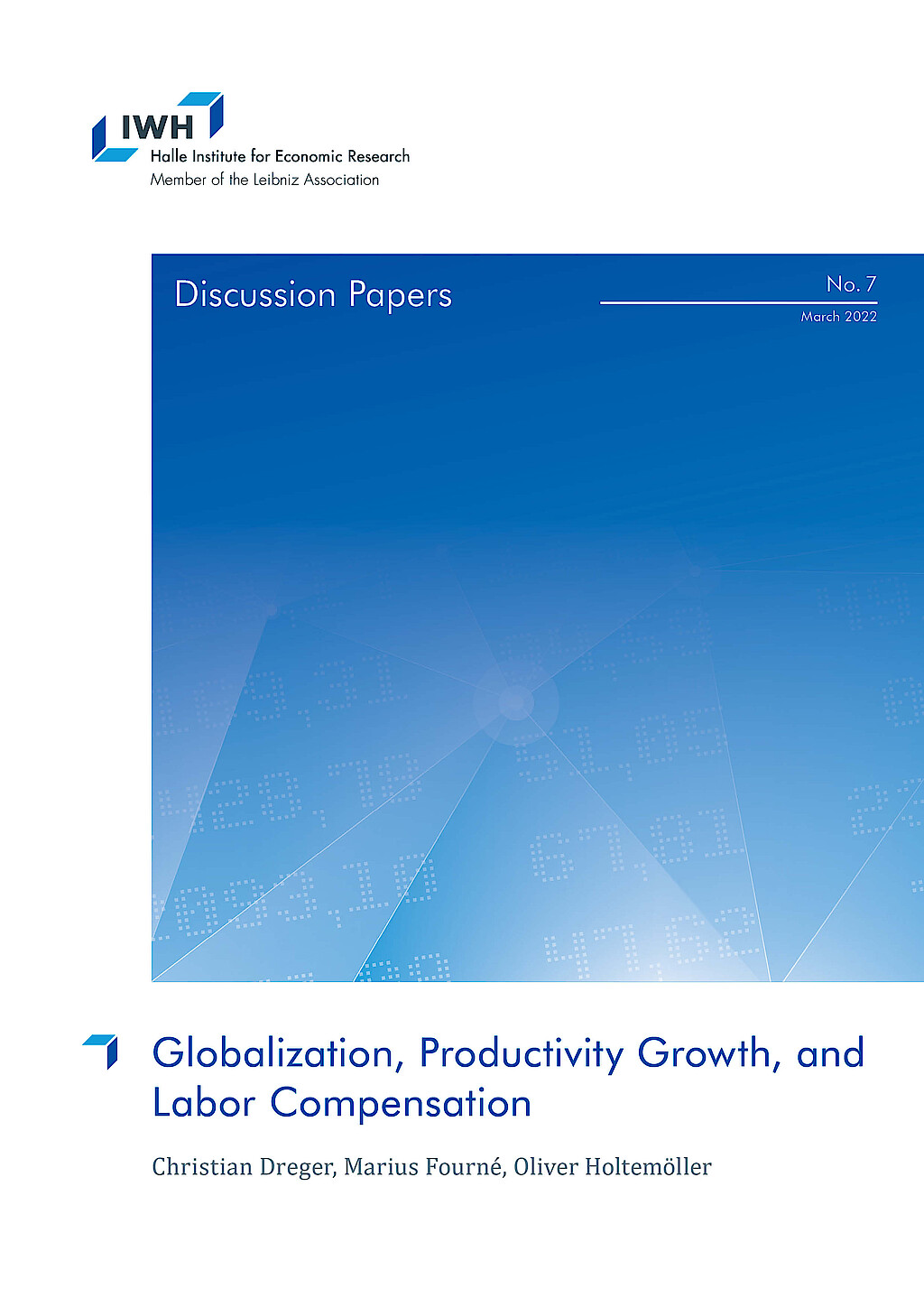
Globalization, Productivity Growth, and Labor Compensation
in: IWH Discussion Papers, Nr. 7, 2022
Abstract
We analyze how changes in international trade integration affect productivity and the functional income distribution. To account for endogeneity, we construct a leaveout measure for international trade integration for country-industry pairs using international input-output tables. Our findings corroborate on the country-industry level that international trade integration increases productivity. Moreover, we show that both trade in intermediate inputs and trade in value added is associated with lower labor shares in emerging markets. For advanced countries, we document a positive effect of trade in value added on the labor share of income. Further, we show that the effects on productivity and labor share are heterogeneous across different sectors. Finally, we discuss the implications of our results for a possible throwback in international trade integration due to experiences from recent crises.
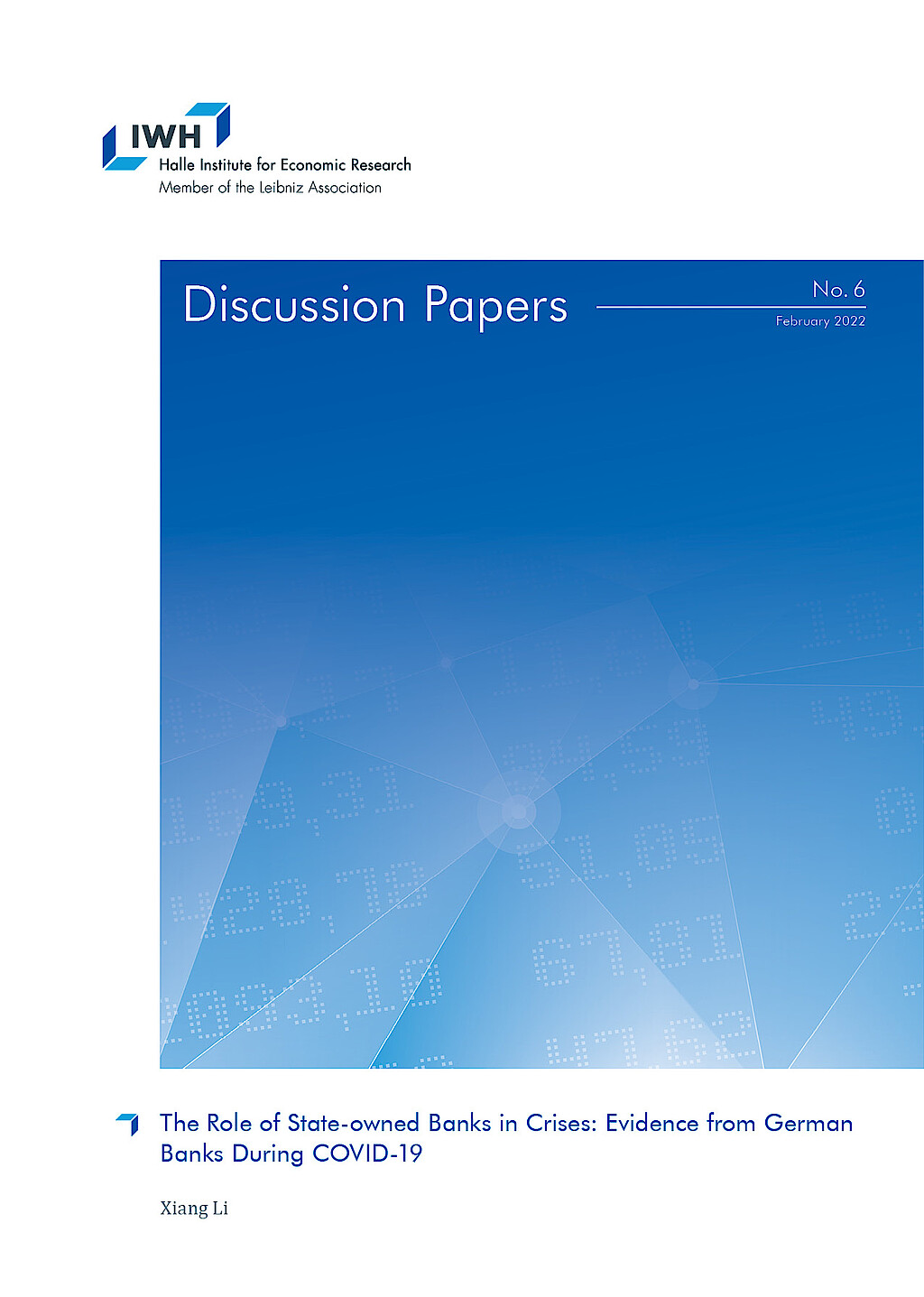
The Role of State-owned Banks in Crises: Evidence from German Banks During COVID-19
in: IWH Discussion Papers, Nr. 6, 2022
Abstract
By adopting a difference-in-differences specification combined with propensity score matching, I provide evidence using the microdata of German banks that stateowned savings banks have lent less than credit cooperatives during the COVID-19 crisis. In particular, the weaker lending effects of state-owned banks are pronounced for long-term and nonrevolving loans but insignificant for short-term and revolving loans. Moreover, the negative impact of government ownership is larger for borrowers who are more exposed to the COVID-19 shock and in regions where the ruling parties are longer in office and more positioned on the right side of the political spectrum.







